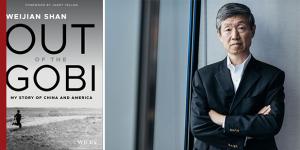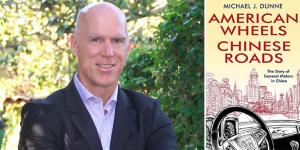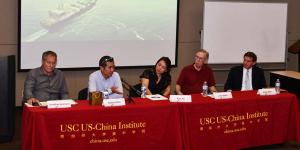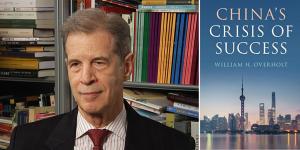News
Weijian Shan on his journey from the Gobi Desert to a becoming a successful financier
Weijian Shan gave a lively talk at USC highlighting his experiences as a "sent-down youth" during China's Cultural Revolution.
Understanding the ongoing U.S.-China trade war
Clayton Dube, director of the USC U.S.-China Institute, explains this latest phase of the trade war and how it might impact American consumers.
Michael Dunne on General Motors in China
Michael Dunne's book reveals how extraordinary people, remarkable decisions and surprising breaks made triumph in China possible for General Motors.
Video: Michael Dunne on General Motors in China
Michael Dunne, author of American Wheels: Chinese Roads, talks about General Motors' successful efforts to build its China business and about the current state of Chinese auto market.
A Roundtable Discussion Of The U.S.-China Trade War
On August 30, 2018, the USC U.S.-China Institute hosted a discussion on American and Chinese aims and tactics in the US-China trade war as well as its impact and potential costs.
A Time of Uncertainty in US-Taiwan-China Relations
The Grassroots Diplomacy Council and the USC U.S.-China Institute hosted a symposium on the relationships of Taiwan, China, and the United States.
USC and China in the News - July and August, 2018
China-related news involving USC research, faculty, students and organizations.
William Overholt Discusses His Book "China's Crisis of Success"
William Overholt argues that as China reaches a threshold where success has eliminated the conditions that enabled miraculous growth, Xi Jinping is pursuing the riskiest political strategy of any important national leader.
Bill Bikales: China - Mongolia Relations, trends and recent developments
A response to Morris Rossabi's discussion of China and Mongolia ties.
Video: William Overholt Looks at China's Path Forward
William Overholt argues that as China reaches a threshold where success has eliminated the conditions that enabled miraculous growth, Xi Jinping is pursuing the riskiest political strategy of any important national leader. Alternative outcomes include continued impressive growth and political stability, Japanese-style stagnation, and a major political-economic crisis.












